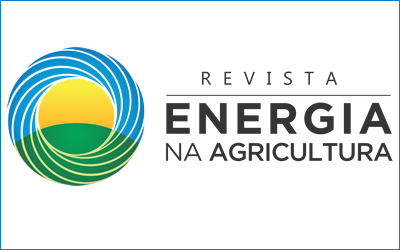COMPARAÇÃO DO CONSUMO DE ÁGUA E ENERGIA ELÉTRICA E INDICADORES SOCIOECONÔMICOS EM CONJUNTOS HABITACIONAIS COM E SEM SISTEMA DE AQUECIMENTO SOLAR
DOI:
https://doi.org/10.17224/EnergAgric.2017v32n1p48-56Abstract
Atualmente fontes de energia renováveis são exploradas para o desenvolvimento da sociedade e se destacam por serem mais limpas e menos poluentes. Entre estas fontes de energia renováveis, a energia solar é usada em sistemas de aquecimento solar de água, que tem entre seus objetivos, o de proporcionar economia de energia elétrica, pois fornece água quente sem a necessidade de utilizar sistemas elétricos, como o chuveiro elétrico, o qual é um dos aparelhos que mais consome energia. Para proporcionar economia do consumo de energia elétrica, minimizar impactos ambientais, redirecionar investimentos em novas fontes geradoras de energia elétrica, o Governo do Estado de São Paulo, em conjunto com a Companhia de Desenvolvimento Habitacional e Urbano do Estado de São Paulo - CDHU, como política de habitação, instalaram, nas residências de interesse social o sistema de aquecimento solar de água. O objetivo desta pesquisa foi comparar o consumo de água e energia elétrica, e variáveis socieconômicas entre dois conjuntos habitacionais, sem e com o sistema de aquecimento solar, na cidade de Ourinhos-SP. Os resultados permitiram concluir que existe diferença significativa entre os conjuntos de variáveis de consumo e as socioeconômicas.
PALAVRAS-CHAVE: T2 de Hotelling, consumo, socioeconômico, sistema de aquecimento solar, habitações de interesse social.
WATER AND ELECTRICITY CONSUMPTION COMPARISON AND SOCIOECONOMIC INDICATORS ON HOUSING SETS WITH AND WITHOUT SOLAR HEATING SYSTEM.
ABSTRACT: Currently, renewable energy sources are used to the society development and stand out for being less polluting. Among the renewable energy sources, the solar energy is used in water heating systems, that has among its objectives, to provide savings of electricity heating water without the need for electrical systems such as the electric shower which is one of the appliances that consume more energy. To provide energy consumption economy, minimize environmental impacts, redirect investment in new sources of electricity, the Government of the State of Sao Paulo, together with the Development Company of Housing and Urban of the State of Sao Paulo - CDHU, installed theses systems in homes of social interest. The objective of this research was to compare the consumption of water and electricity, and socioeconomic variables between two housing projects with and without solar heating system in the city of Ourinhos-SP. The results showed a significant difference between consumption and socioeconomic variables.
Downloads
Published
How to Cite
Issue
Section
License
Esta revista proporciona acesso publico a todo seu conteúdo, seguindo o princípio que tornar gratuito o acesso a pesquisas gera um maior intercâmbio global de conhecimento. Tal acesso está associado a um crescimento da leitura e citação do trabalho de um autor. Para maiores informações sobre esta abordagem, visite Public Knowledge Project, projeto que desenvolveu este sistema para melhorar a qualidade acadêmica e pública da pesquisa, distribuindo o OJS assim como outros software de apoio ao sistema de publicação de acesso público a fontes acadêmicas.





